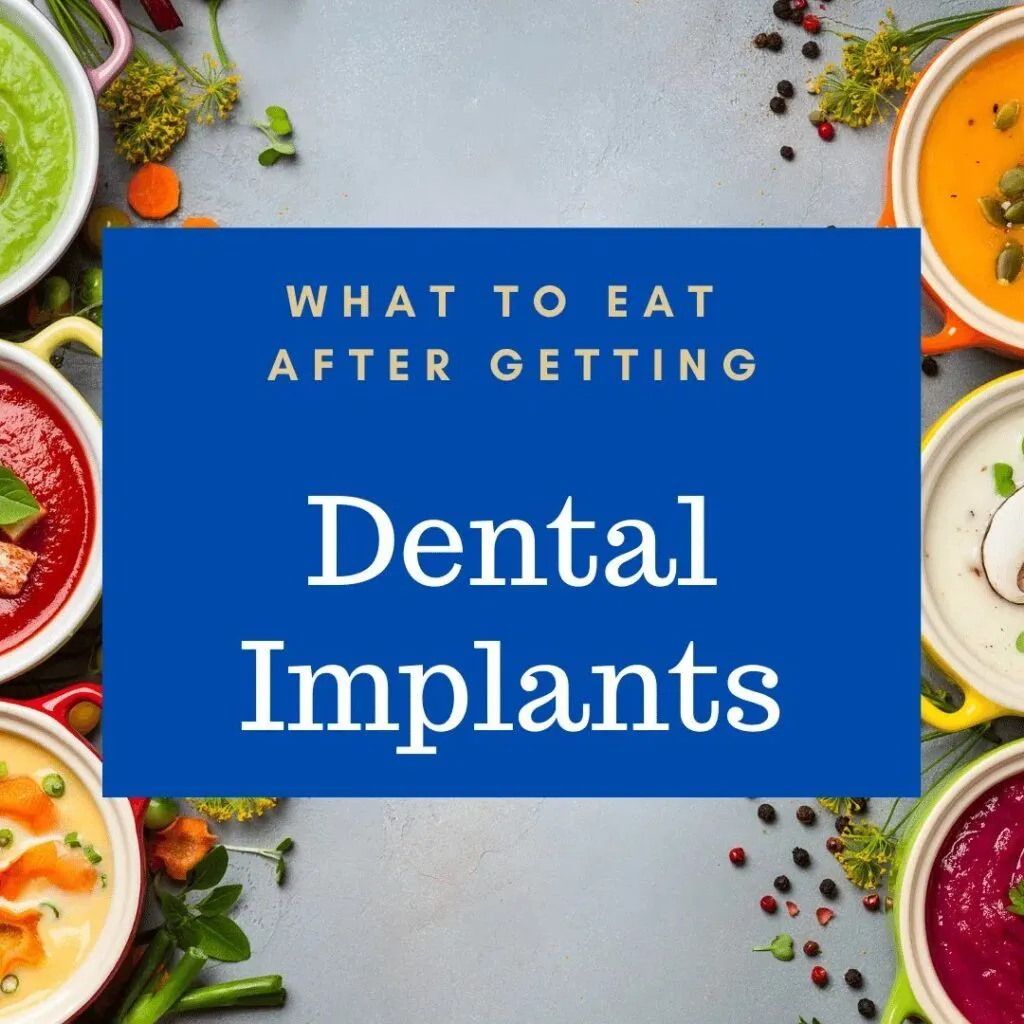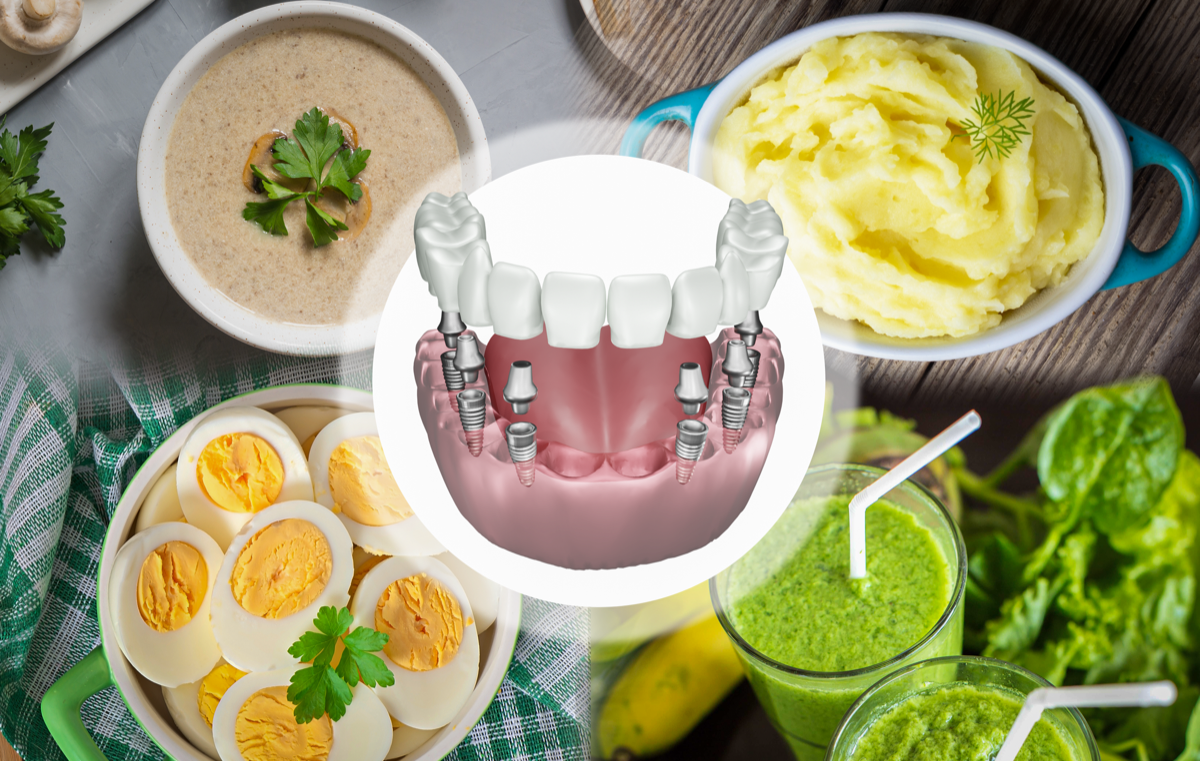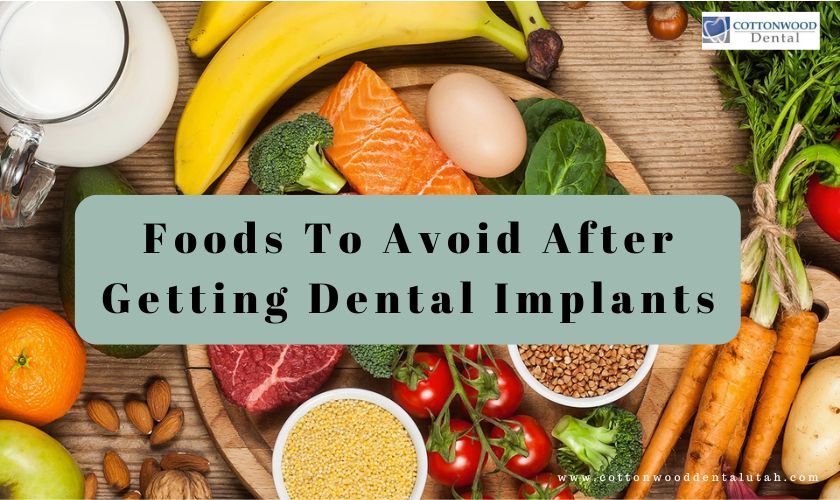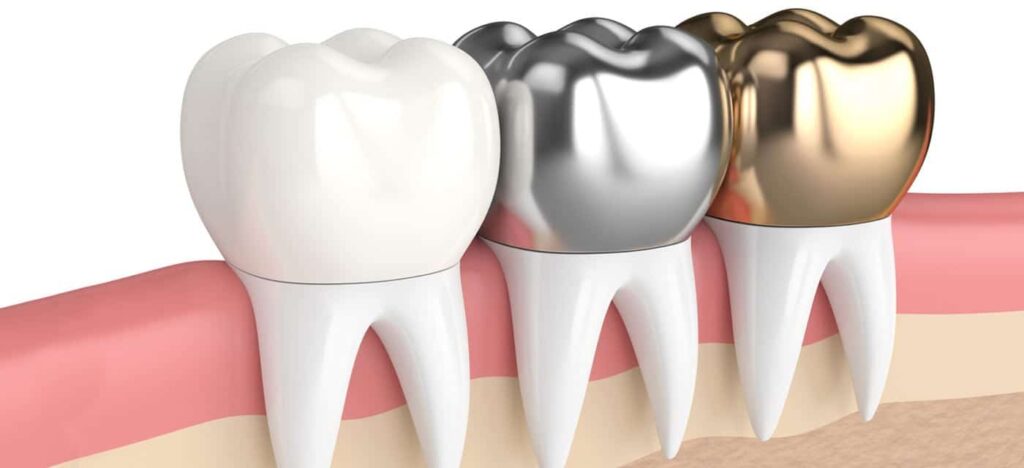
If you have undergone dental implant surgery or are thinking of getting one, you might be considering you’ll miss out on your favourite foods. Well, that’s partially true. This guide deals with foods you can or cannot eat after getting dental implants. So, let’s dive straight into a complete diet plan.
What Can You Eat After Dental Implant Surgery?
Dental implant surgery is an effective and safe solution for restoring natural-looking and functioning teeth. It allows the patients to eat and speak normally. However, throughout the treatment, there are some precautions that need to be kept in mind. It will allow better healing so the patients can eat and drink anything they want afterwards.
Foods to Eat Within 24 to 48 Hours of Dental Implant

Soon after the surgery, the gums and jawbone are sensitive. Thus, you should be very cautious for the first 24 to 48 hours and resort to a soft food diet. This is the prime time to give your oral cavity some time to heal. It is a time when you should stay away from any solid or hot drinks or food. You should only eat or drink cold and liquified food items initially.
After implant surgery, patients experience difficulty in eating which can weaken the body. Due to this, they need to eat nutrition-rich meals that are healthy for the body and soft for the teeth.
Here’s what you can eat right after your dental implant surgery:
Smoothies
Smoothies are healthy and rich in vitamins. They are tasty and fulfilling which bring energy to the body while being light to eat. There is no need to chew. Therefore, they are best to eat to gain energy post-surgery and give your jaw time to heal.
Cold Soups
Soups are nutritious meals that fulfil the appetite while staying soft to the teeth and easy to digest. However, hot soups may cause sensitivity to teeth post-surgery. So, if you are looking for healthy meal options for a few days after surgery, you should resort to cold soups.
Pasta
Pasta is an easy option post dental implant surgery. You may eat pasta with fewer spices and over-boiled so it is easier to chew. You can add shredded chicken or vegetables for extra nutrition and vitamins.
Oatmeal
Oatmeals are easy to chew which makes them a healthy and suitable option to eat after a dental implant. You can prepare your oatmeal in various ways according to your taste.
Soft Foods
It is ideal to stick to a soft food diet including scrambled eggs, mashed potatoes, etc.
Foods Not to Eat Within 24 to 48 Hours of Dental Implant

While the gums and bones are hypersensitive following the dental implant, it is important to stay away from certain type of foods. It helps with quick healing and successful implants. Here are some foods not to eat within 24 to 48 hours of the dental implant:
Crunchy and Hard Foods
Crunchy and hard foods like chips, vegetables, fruits, popcorn, nuts, crackers, etc are hard to chew. It is vital to avoid chewing and putting any pressure on the jaw after the implant. Therefore, patients should avoid such foods
Spicy foods
A dental implant is a surgical procedure that uses the cut-open-and-treat method. The teeth remain sensitive post-surgery. Therefore, it is better to avoid spicy foods that may irritate the wound and restrict quick healing. Alternatively, you should eat simple, soft, and non-spicy food items like eggs, oatmeal, pasta, soups, etc.
Chewy Foods
Chewy foods make the teeth and jaw work tirelessly. Foods like candies, taffies, meat, bagels, gummies, etc can stick to the implant and may cause issues.
Hot Foods and Beverages
If you are someone who can’t go without your daily cup of hot coffee or tea, you have to compromise on it for a few days after dental implant surgery. Not to forget hot foods like soups. They irritate and create problems in healing.
Dairy Products
Dairy products likely cause inflammation in the body which may lead to pain or infections in the implant. It may cause hindrances in healing. Therefore, it is better to avoid dairy products initially.
How Long after a Dental Implant Can I eat Normally?
Patients experience difficulty in chewing and irritation for a few initial days after a dental implant. However, the purpose of dental implants is to restore the natural functioning of teeth. Therefore, patients can start normal chewable and hard foods gradually into their diet.
After a week of dental surgery, patients can start with semi-hard food diets like soft meat (chicken fish, or boiled and softened meat), nuts, cooked vegetables etc. Anyhow, the progression in food intake depends on the healing process of the implant. If the healing is slow, it is ideal to stay with a soft food diet for the first few weeks after surgery. After that, they can continue living normally and enjoy their favourite foods like normal.
FAQs
How long after a dental implant can I eat normally?
The initial days and the first few weeks after surgery are difficult and may be painful. After a few weeks, when the pain subsides and sensitivity reduces, patients can eat and drink normally.
What food is good after dental implant?
After getting tooth implants, you should stick to a soft food diet like smoothies, eggs, oatmeal, cereals, cold soups, softened pasta, etc. These foods are soft on teeth and improve the healing process of implants.
Why no dairy after a dental implant?
Dairy products likely cause inflammation in the body which may lead to pain or infections in the implant. It may cause hindrances in healing. Therefore, it is better to avoid dairy products initially.
How can I make my dental implant heal faster?
Following your dentist’s recommendations, after care, oral hygiene, and sticking to a soft food diet can help the implant heal faster.
What foods should I avoid after a dental implant?
You should avoid crunchy, chewy, spicy, hot, and hard food items for some time after a dental implant.
Can you eat ice with a dental implant?
Ice is really hard which can damage the teeth with or without dental implants. So, it is not recommended to eat/chew ice in any situation. Especially with implants as it may crack the implant.



